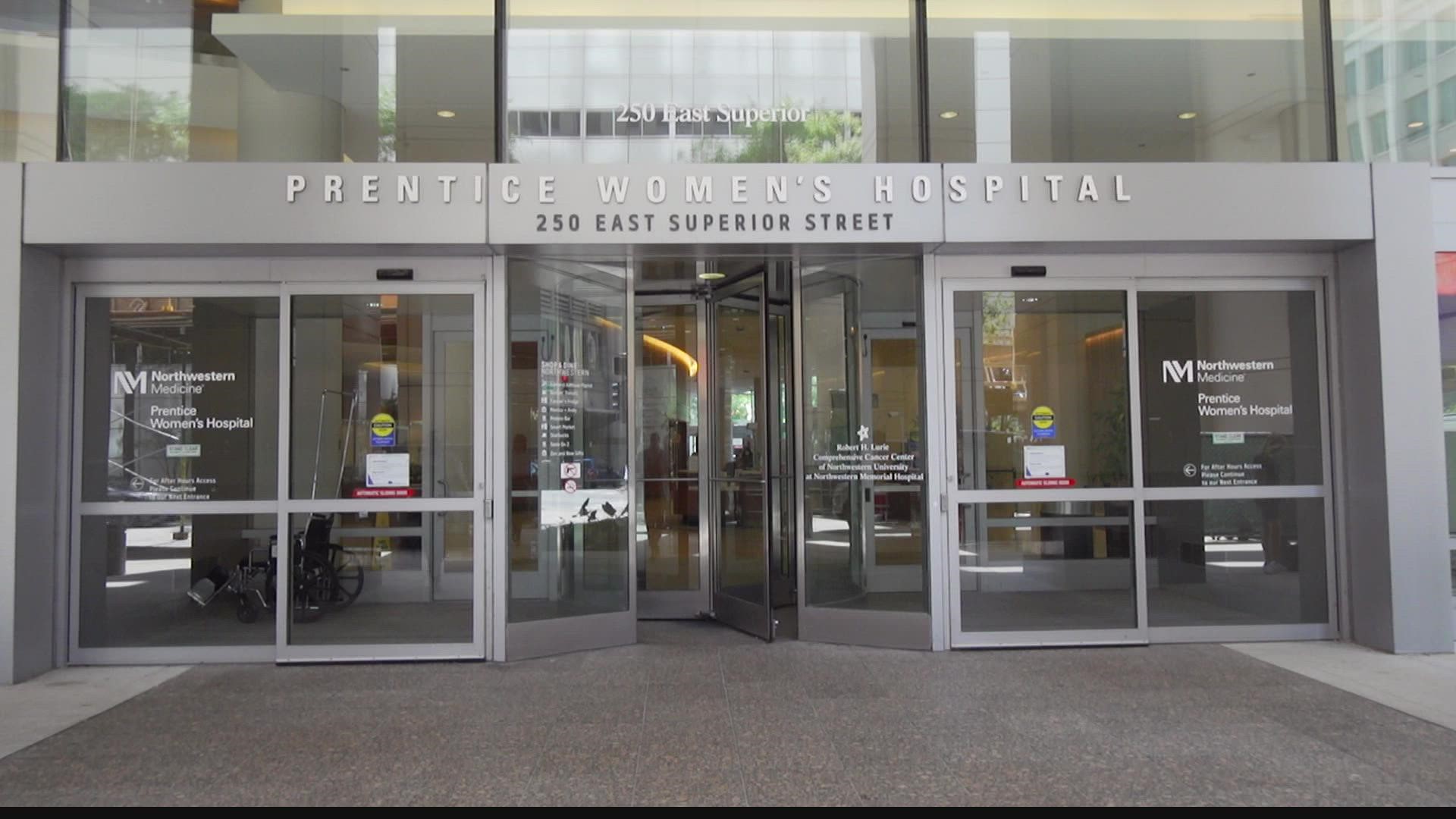CHICAGO — Monday marks one month until Indiana's new abortion restrictions take effect.
Already, abortion care and healthcare providers in Chicago are seeing an increase in people crossing state lines for help. For women dealing with high-risk pregnancies facing dangerous health complications, access to abortion care can be lifesaving.
"In women with high-risk pregnancies, if we are not able to protect women to control the destinies of their own bodies, to control their fates, then there's no doubt that lives will be lost," said Dr. Susan Gerber, associate professor of maternal fetal medicine in the Department of Obstetrics & Gynecology at Northwestern Medicine.
Gerber said Chicago's healthcare providers are already finding themselves as a destination for women in high-risk pregnancies. Some women dealing with high-risk pregnancies are now making the trip to Illinois seeking the abortion care their state may no longer allow, others because their physicians no longer feel safe offering it.
"These are desired pregnancies, these are women who want to be mothers. But they also don't want to die and don't want to orphan the children they have at home," Gerber said.
In maternal fetal medicine, Gerber said they see women dealing with high-risk pregnancy, often complicated health situations. From those dealing with a diagnosis of a lethal fetal condition, to a pregnant person with a complex medical history whose life is at risk being pregnant, to a woman whose water breaks prematurely, putting her at risk for infection.
"These are patients for whom pregnancy termination may be lifesaving,” she said.
The decisions they're making when it comes to termination, Gerber said, are often heartbreaking.
"These are not decisions that anyone makes lightly and these are decisions that are made carefully and with thought," she said. "And this is something that these laws and rules take away from women, is the ability to really give careful consideration to the decisions they're making because of the time constraints."
As Roe v. Wade was overturned, she said providers in Illinois began preparing for the likelihood that many women would be traveling from out of state in need of abortion care.
"There have been discussions taking place among the leaders in the complex family planning community for months now anticipating this," Gerber said. "But the services we have already been providing, our team is ready, willing and able to absorb all patients coming, needing help."
Demand for those services is already rising, it has been for months.
"The volume of phone calls and number of patients reaching out to us in need of pregnancy termination has dramatically increased since the Dobbs decision. This actually had already started to take place ever since the law passed in Texas, but with the Dobbs decision, we’re anticipating more and more patients flocking to Chicago in need of services,” Gerber said.
RELATED: Gov. Holcomb signs abortion ban into law, takes effect Sept. 15; $200 tax refund bill also signed
But it's not just patients and doctors reaching out to Chicago doctors.
"We're also getting phone calls from educators in other states where there are trainees learning to be OB/GYN physicians who are now unable to get that training in the states where they're working," Gerber said. "So we're getting requests for trainees to come work with us and train with us."
Gerber said she worries that as more states continue to pass abortion restrictions with vague language, lawmakers are attempting to make healthcare and different medical conditions or complications very black and white.
“So there’s actually an enormous gray area, because it’s very rare in medicine that things are all or naught," she said.
But when a condition threatens a pregnant person's life, Gerber said doctors need to be able to act quickly, offering care. Delaying it can be dangerous.
"There's no doubt that these sorts of laws will further increase the risk of morbidity mortality for women in this country," Gerber said.
While Illinois' neighbors continue to restrict abortion care access, Chicago healthcare providers like Gerber say they'll be here, ready to help and offer lifesaving care, serving as a port in this growing healthcare storm.
"Until things change and until protections are returned to women in this country, I think the city of Chicago and the providers in the city of Chicago are going to play a vital role in protecting the health of women in the Midwest," Gerber said.
Indiana's new abortion ban only includes exceptions for cases of rape, incest, if the mother's health is at risk, or if the fetus has certain anomalies. Physicians can lose their license if they perform an illegal abortion.
Indiana's new law banning abortion takes effect Sept. 15.

